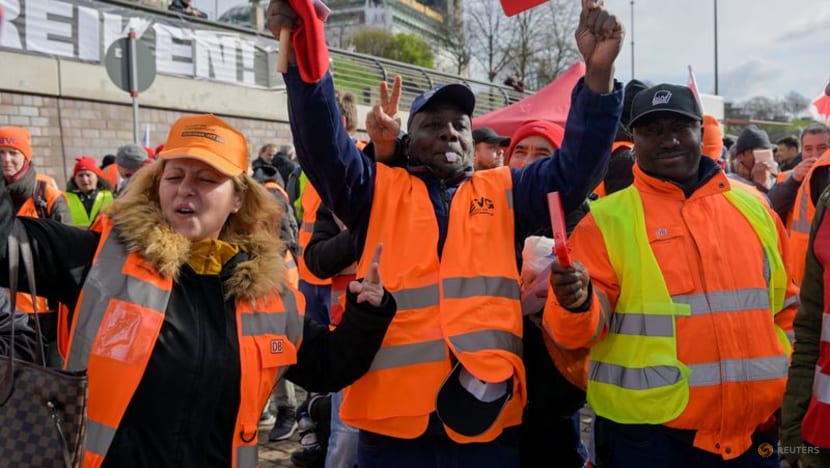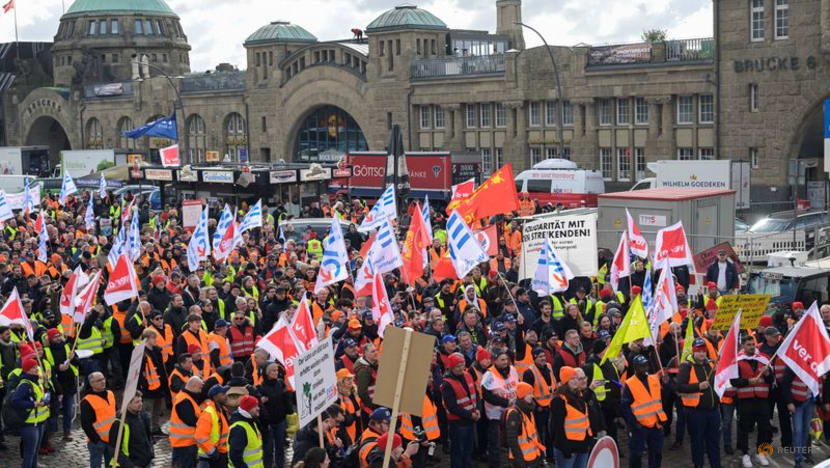
BERLIN/FRANKFURT: Airports and bus and train stations across Germany were at a standstill on Monday (Mar 27), causing disruption for millions at the start of the working week during one of the largest walkouts in decades as Europe's biggest economy reels from inflation.
The 24-hour strikes called by the Verdi trade union and railway and transport union EVG were the latest in months of industrial action which has hit major European economies as higher food and energy prices dent living standards.
Terminals were largely deserted as airports, including two of Germany's largest in Munich and Frankfurt, suspended flights, while rail services were cancelled by railway operator Deutsche Bahn. Striking workers wearing yellow or red high-visibility jackets blew horns, sirens and whistles, held up banners and waved flags during protests.
The Airports Association ADV estimated that 380,000 air passengers were affected. In Frankfurt alone, almost 1,200 flights for 160,000 passengers were cancelled and stranded travellers slept on benches. In Cologne, the lack of city trains prompted a dash for taxis.
Employees are pressing for higher wages to blunt the effects of inflation, which reached 9.3 per cent in February. Germany, which was heavily dependent on Russia for gas before the war in Ukraine, has been particularly hard hit by higher prices as it scrambled for new energy sources, with inflation rates exceeding the euro-area average in recent months.
Persistent cost pressures have pushed central banks to a series of interest rate increases, though policymakers have said it is too early to talk of a price-wage spiral.
Verdi is negotiating on behalf of around 2.5 million employees in the public sector, including in public transport and at airports, while EVG negotiates for around 230,000 employees at Deutsche Bahn and bus companies.
In the hours running up to the strike, both sides dug in their heels, with union bosses warning that considerable pay hikes were a "matter of survival" for thousands of workers.
"Millions of passengers who depend on buses and trains are suffering from this excessive, exaggerated strike," a Deutsche Bahn spokesperson said on Monday.

Verdi is demanding a 10.5 per cent wage increase, which would see pay rising by at least 500 euros (US$538) per month, while EVG is asking for a 12 per cent raise or at least 650 euros per month.
Stranded passengers expressed both sympathy and unhappiness about the strike action.
"Yes, it's justified but I for one never went on strike in my entire life and I have been working for more than 40 years. At the same time, in France they go on strike all the time about something," said passenger Lars Boehm.
https://www.channelnewsasia.com/world/largest-strike-germany-decades-standstill-transport-3376971

